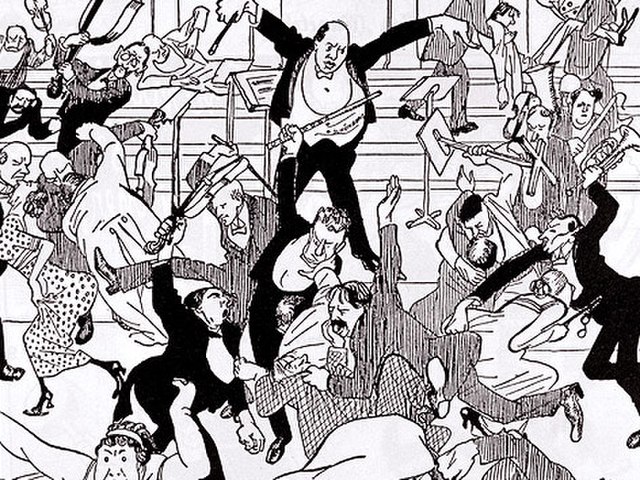Charles Edward Ives was an American actuary, businessman, and modernist composer.
Ives was amongst the earliest American internationally renowned composers to achieve recognition on a global scale. His music was largely ignored during his early career, and many of his works went unperformed for many years. Later in life, the quality of his music was publicly recognized through the efforts of contemporaries like Henry Cowell and Lou Harrison, and he came to be regarded as an "American original". He was also among the first composers to engage in a systematic program of experimental music, with musical techniques including polytonality, polyrhythm, tone clusters, aleatory elements, and quarter tones. His experimentation foreshadowed many musical innovations that were later more widely adopted during the 20th century. Hence, he is often regarded as the leading American composer of art music of the 20th century.
Portrait of Ives by Clara Sipprell, c. 1947
Charles Ives, left, captain of the baseball team and pitcher for Hopkins Grammar School, aged 18 (c. 1893)
Ives' graduation portrait from Yale University, c. June 1898
Charles Ives House in Danbury, Connecticut
In music, modernism is an aesthetic stance underlying the period of change and development in musical language that occurred around the turn of the 20th century, a period of diverse reactions in challenging and reinterpreting older categories of music, innovations that led to new ways of organizing and approaching harmonic, melodic, sonic, and rhythmic aspects of music, and changes in aesthetic worldviews in close relation to the larger identifiable period of modernism in the arts of the time. The operative word most associated with it is "innovation". Its leading feature is a "linguistic plurality", which is to say that no one music genre ever assumed a dominant position.Inherent within musical modernism is the conviction that music is not a static phenomenon defined by timeless truths and classical principles, but rather something which is intrinsically historical and developmental. While belief in musical progress or in the principle of innovation is not new or unique to modernism, such values are particularly important within modernist aesthetic stances.

A caricature of the infamous Scandal Concert, conducted by Arnold Schoenberg on 31 March 1913.
Karlheinz Stockhausen, c. 1969
Claude Debussy, c. 1900
Arnold Schoenberg, 1927, by Man Ray








